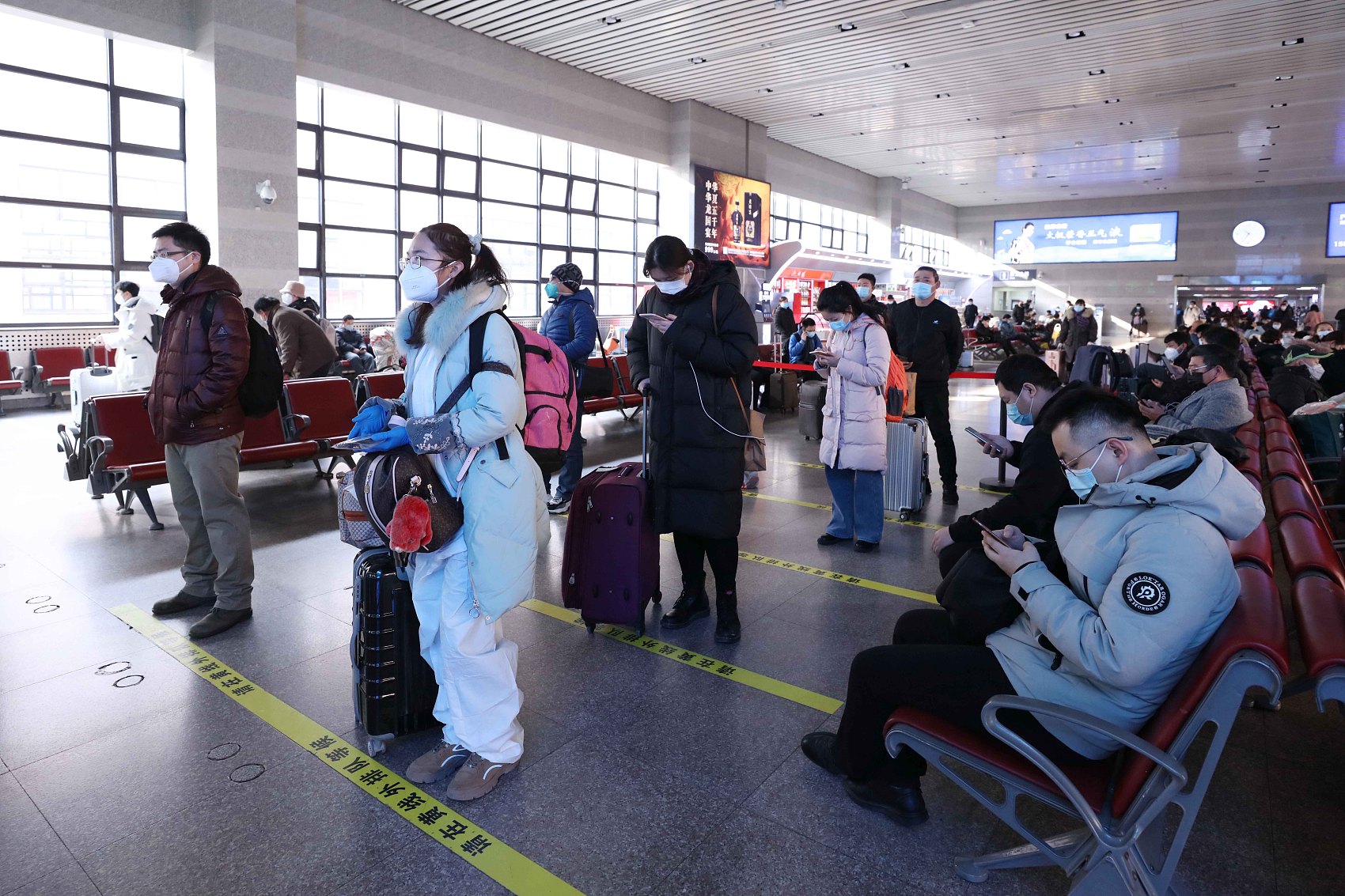Measures to contain the coronavirus outbreak have been strengthened in China's transportation system as the Spring Festival, China's Lunar New Year is nearing. The holiday will see the biggest annual human migration in the world.

(File photo: CFP)
According to the Ministry of Transport, a total of 1.7 billion passenger trips are expected during the holiday travel rush this year, which means 40 million trips daily.
Compared with the trips of 2019, this year's passenger trips are expected to fall 40 percent, according to Wang Xiuchun, deputy head of the ministry's transportation service department. But she added that the number is expected to increase by 10 percent compared with last year.
"So the pressure on the country's traffic system is still big," Wang told reporters.
Wang said that to cope with the recent flare-up of COVID-19 cases in China, especially in several northern provinces, like Hebei, Heilongjiang and Jilin, the traffic system has fortified measures to contain the spread of the coronavirus.
"We'll adjust, refine and perfect prevention and control measures in transportation, as well as improve the planning system for epidemic control and give our full efforts to off-peak transportation," she said.
"We've called for people, including migrant workers, to stay in the cities where they work during Spring Festival holidays to reduce the chance of spreading the virus. And we, together with other five ministries, also called for companies and other institutes to provide more service to employees during the Spring Festival," said Chen Yongjia, deputy head of the Employment Promotion Department of the Ministry of Human Resources.
Authorities said that they've introduced detailed measures in nursing homes to protect elders.
"Visits to care homes have been suspended in the winter and spring seasons due to the epidemic," said Li Banghua, deputy head of the Elderly Care Department of Ministry of Civil Affairs. Li added that aside from human beings, goods and other materials that enter care homes will all be sterilized and then handled under stringent requirements.
"Since the end of the epidemic in Wuhan, nearly 40,000 nursing homes across China haven't reported any confirmed cases. Recently, Beijing, Hebei, Heilongjiang and other places have reported clusters of COVID-19 cases, but no single case has occurred in nursing homes," Li noted.
He said that all workers and elders in care centers undergo body temperature checks twice every day and nucleic acid testing regularly.
Officials assured that there won't be a serious resurgence of the coronavirus during the upcoming Spring Festival since China has gained a better understanding of COVID-19 through the fight against the virus last year.


